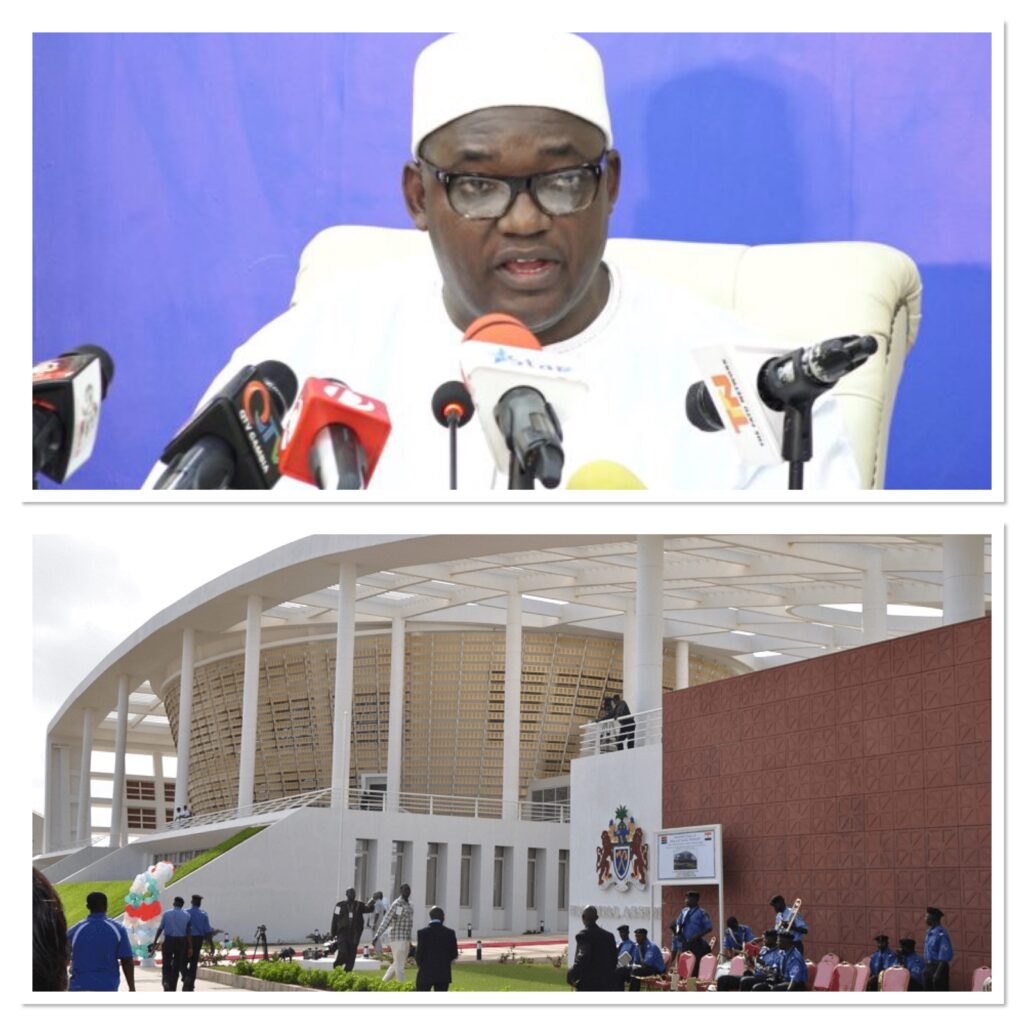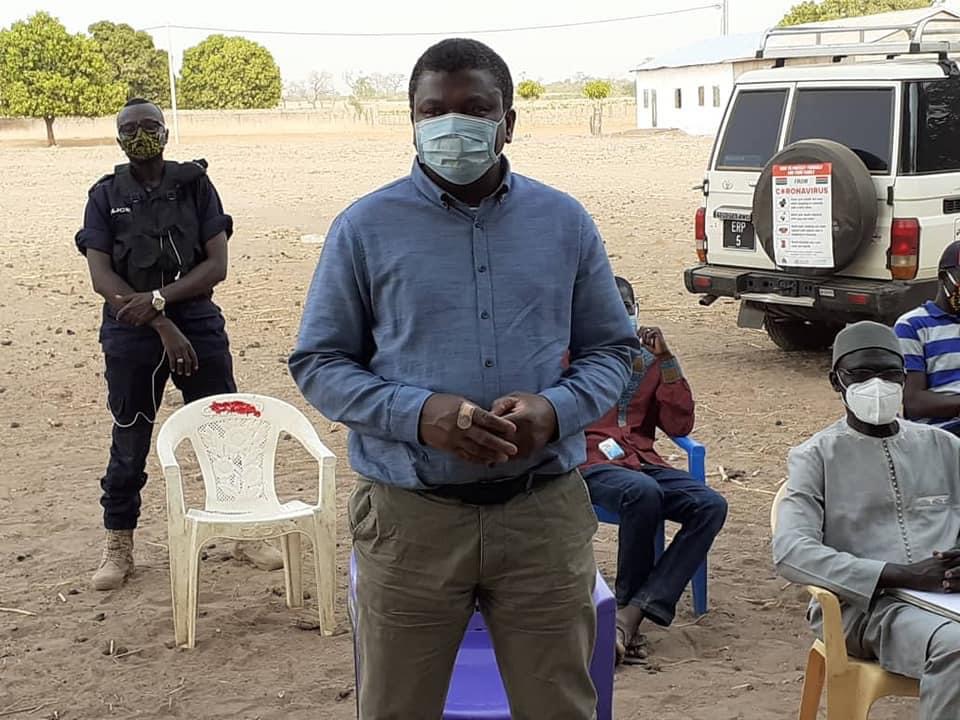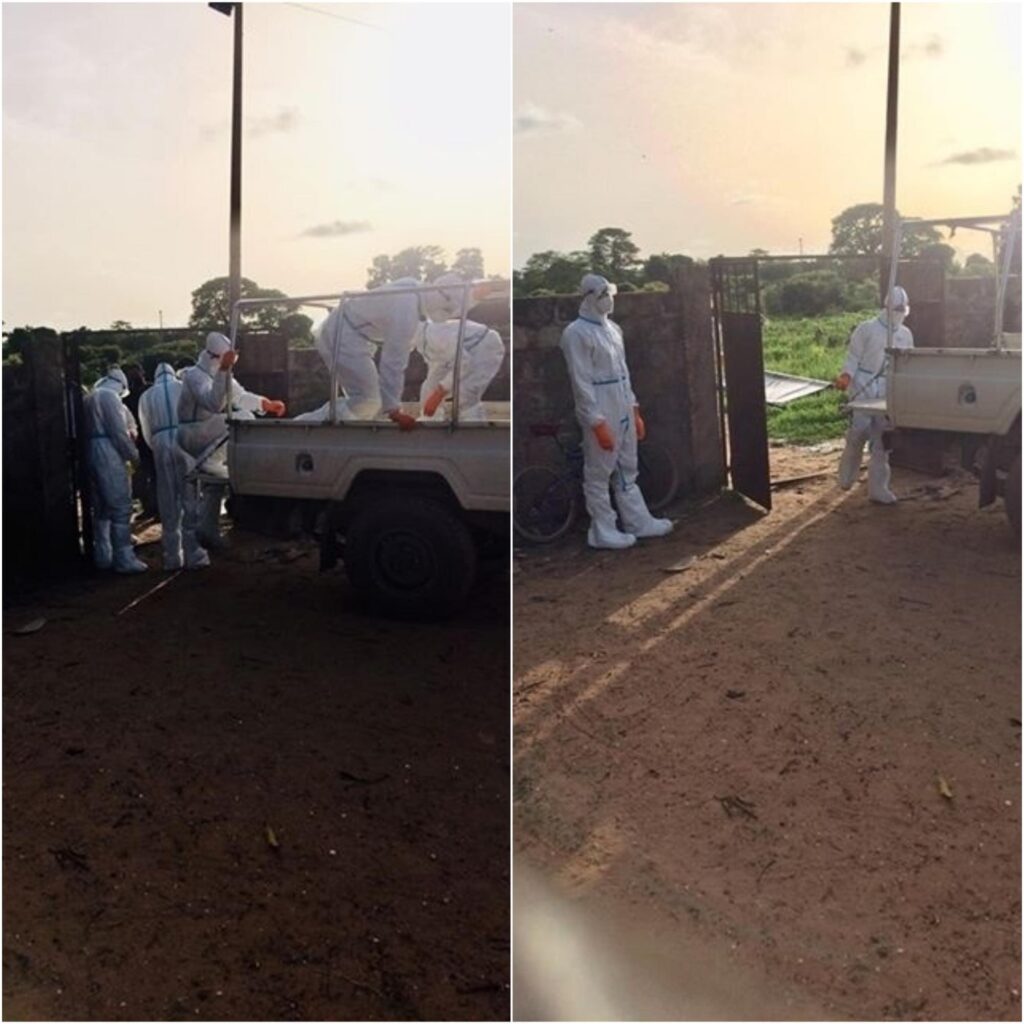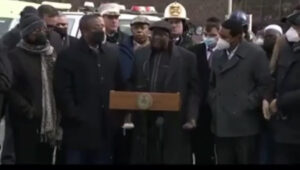
Let us face it. A fiasco in the making? When caught in a fight between a weak presidency and the National Assembly, that play the majority or ‘tyranny of numbers’ politics, with weak independent institutions and a crippled economy, in the middle of a pandemic-instigated economic tailspin.
It would be best if we had all the sobriety we could master to unite the country in the fight against this deadly coronavirus and bring together a wide array of partners on a series of engaging initiatives to motivate and mobilise our people to be ready to beat Covid-19.
This is not a time to cry about bread and butter like spoilt children. After all, the scripture tells us that man shall not live by bread alone.
We need more than materials things to live genuinely. We need health workers who are frontline soldiers against Covid-19.
Let us obey and follow the instructions of the health authorities. Let us flatten the Covid-19 curve. Let us exercise patience. Let us be our brothers’ keeper. In no time, we shall regain our freedom, enterprise, and socialising.
The State of insecurity in the Gambia is very grave and living in a state of dire straits. Our citizens are not safe. Both the people and the government know this.
Covid-19 is the enemy is here, and our fears are valid. Few of us in our lifetimes have ever confronted this frightening worldwide fulminating peril. We do not think any of us are prepared to battle with a faceless enemy.
Courtesy to Ugandan President Yewori Museveni and to paraphrase him, the world is currently in a state of war. A war without guns and bullets. A war without human soldiers. A war without borders. A war without ceasefire agreements. A war without a war room. A war without sacred zones.
I have always loved the contradictions in the new Gambian version of democracy. The Gambia arguably a country where the de jure opposition is the de facto opposition of the tactical alliance government of President Adama Barrow.
The only country where the de jure opposition political party is the de facto de-whips or punishes its members in the National Assembly or Local government authority for supporting the ruling tactical alliance government of the President and vice versa.

The Gambia, the only country in which the National Assembly members from the main opposition can openly defy the President but support the principal opposition leader’s political and economic policies.
The only country where the opposition de-whips or punishes its members who fail to extend unwavering support and loyalty to their Godfather.
The Gambia, the only country where politicians aligned to the President and the leaders of the opposition, can assemble in significant numbers in defiance of nationwide restrictions on public gatherings and social distancing.
However, an ordinary citizen and his close relatives cannot assemble to pray Jammat prayers on Friday or Sunday Church services.
The only country where leaders have time to wage political battles and maneuvers during a global coronavirus pandemic poses existential threats to every citizen.
This is the time for statesmanship and statecraft. Prevarication, credible opposition to the deadly coronavirus exigency, highfalutin equivocation on the virus, the politicization of the debate, ethnic chest-beating, and high-sounding doublespeak would achieve nothing.
We are losing lives. We are losing the property. We are losing our humanity. Now is the time for Gambians to take destiny into their own hands.
We need to chart a course of self-reliance, build an actual democratic country unstratified by the existing monumental class differences, build an independent national economy, unshackle itself from the sinking, unequal trade balances of the international hegemonic system and pursue internationalism with other states based purely on solidarity, equality, non-interference, and mutual benefit.
We need not wait for tough lessons to be visited on us, such as is happening in the so-called developed world.
Let us flatten the COVID-19 curve in the manner of fundamental questions we should be seeing the government implement: Let us exercise patience.

Let us be our brothers’ keeper. In no time, we shall regain our freedom, enterprise, and socialising.
As the coronavirus pandemic takes hold, we are making decisions without reliable data. When everyone needs better information, from the disease modelers and the government to the people quarantined or just social distancing, we lack reliable evidence on how many people have been infected with Covid-19 or who continue to become infected.
Better information is needed to guide decisions and actions of monumental significance and monitor the coronavirus outbreak’s impact in the country.
The data collected so far on how many people are infected and how the virus is evolving are utterly unreliable. Given the limited testing to date, some deaths and probably the vast majority of infections due to covid-19 are being missed. We do not know if we are failing to capture infections by a factor of different numbers.
Three months after the coronavirus outbreak emerged, most countries, including the US, cannot test a large number of people. No countries have reliable data on the prevalence of the virus in a representative random sample of the general population.
The silent majority of Gambians, according to media reports, said they could not survive lockdown. We have seen how that has played out, and the opposite of the silent majority was a noisy minority, that they would have preferred to be locked up if the State had enforced the restrictions of the State of the Public Emergency (SOPE) orders providing relief and allow palliative for care professional.
The previous proclamation of the SOPE lockdown restrictions has noticeably dented the labour wage and the economy shedding in a significant number of jobs.
That is irrevocably frayed.
Globally, the trajectory of the Covid-19 disease is growing exponentially. In the early stages of the virus outbreak, more people infected, and the more cases raise— the number of confirmed Covid-19.
By the last count, at least the coronavirus strains had been discovered here in The Gambia since roundabout in the early part of March 2020. The points towards a high likelihood that the numbers of infections and deaths are predictably expected to be exponentially high in the coming months.
Although draconian countermeasures have been adopted since the coronavirus pandemic discovered in the Gambia with additional measures, as the proclamation on declaring a state of public emergency powers concerning the novel coronavirus disease was needed to contain and combat the virus in the Gambia successfully.
Nevertheless, the most effective measures, Covid-19, only requires our collective action, discipline, and forbearance. COVID-19 cannot survive social and physical distancing. It only thrives when we confront it.
It loves to be confronted. It capitulates in the face of collective social and physical distancing. It bows before good personal hygiene. It is helpless when we take our destiny in our own hands by keeping us sanitized as often as possible.
If the coronavirus pandemic dissipates either on its own or because of the measures adopted and recommendations, the short-term extreme social distancing and lockdowns may be bearable.
However, how long should the restriction measures continue if the pandemic churns across the globe are unabated? How can policymakers tell if they are doing more good than harm?
With reliable data of tests and with more positive cases, we can estimate that every four SMEs would not survive beyond September or October going by the current trajectory.
We are witnessing donor fatigue. Those who would enthusiastically give towards helping the needy are reducing as the situation prolongs. I am not in a place to comment on how the scandal-prone govt cash transfers are working.
Those who can afford to make the right calls to the right people can keep travelling — talk of the principle of compounding (dis)advantages.
Without an apparent resumption of normalcy strategy, lots of spaces will/have already reopen(ed) unofficially, which will further complicate whatever containment policy measures they are trying to achieve in the respective region.
We will need massive re-investment in public health infrastructure to complement the efforts of the clinical health infrastructure.
Covid-19 is here to stay, and we do not have to make the false choice between health vs. economy. Robust public health systems can allow us to resume as much economic normalcy while keeping the infection rates low.
Stay safe.
By Alagi Yorro Jallow











Recent Comments